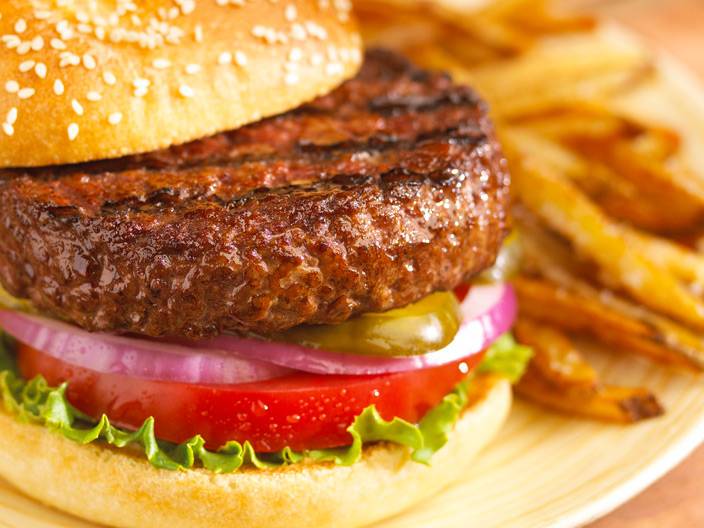Trans fats: The Darth Wader of Food
In 1994, a study at Harvard University reported that people who consumed the highest amounts of trans fats had twice the heart-attack risk of those who consumed little. Dr. Neeru Bali explains how trans fats are a metabolic poison and why one needs to check the contents label before buying any eatable from the market.
Nutritionists all over the world, till very recently, have been focusing primarily on fats and cholesterol to prevent heart disease. Right from early age, everyone was advised to cut on dietary intake of saturated fats and cholesterol. This was based on numerous epidemiological studies and clinical research which established a close relationship between circulating cholesterol and LDL cholesterol with Coronary artery and peripheral vascular diseases. We believed, rather naively, that circulating cholesterol is directly related to dietary cholesterol and saturated fats. However, newer studies have proved, beyond a reasonable doubt, that most of the circulatory cholesterol is produced in liver. Dietary fat influence it to about twenty percent only. That is precisely the reason why different members of family or social groups may have varied blood cholesterol levels despite having similar diet. American Nutritional Agency has also come up with new guidelines putting less emphasis on dietary fat intake.
Despite this new and compelling data, there is uniformity of opinion that one specific type of fats is universally harmful and injurious to blood vessels, namely “trans fats”. Trans Fats are a type of partially hydrogenated oils which help food to last longer and give them extra texture and taste. Some restaurants use partially hydrogenated vegetable oil in their deep fryers because it does not have to be changed as often as other oils. Fast food joints across the world have been using trans fats to increase shelf life of their eatables and to make them crispy. They are cheap and therefore widely used. In addition, food items which are repeatedly cooked in same oil, like samosas, kachoris, french fries etc are also rich in trans fats as repeated heating of unsaturated oils produces trans fats by chemical process of hydrogenation. Trans fats are also found in baked goods, most cakes, cookies, piecrust, snacks, potato chips, many types of packaged or microwave popcorns to give them flavor, fried foods- french fries, fried chicken. Non-dairy coffee creamer and stick margarines also may contain partially hydrogenated oils.
There is a large body of scientific data, which has shown that trans fats increase bad LDL cholesterol and triglycerides and decrease good HDL cholesterol. Replacing other fats with trans fats significantly increased Total/HDL Cholesterol ratio and negatively affect lipoproteins (Apo B/Apo A ratio) ,both important risk factors for heart disease. Trans fats are linked to increased inflammatory markers including C-Reactive protein especially in people who have lot of fat. This inflammatory state damages the inner lining of blood vessel known as endothelium. Integrity of endothelium is extremely important to prevent onset of atherosclerosis. Endothelium is an extremely important organ and produces numerous molecules which dilate blood vessels, prevent clot formation and prevent onset of disease. Inflammatory markers are important in atherosclerotic disease activity also as it makes blocks unstable leading to unstable angina and heart attacks.
We should move towards excluding trans fats completely from our diets. In many Scandinavian countries, use of trans fats is completely banned. Some states in US like California have also banned its use. Other countries are in the process of doing same. American heart Association says that if trans fats are less than one per cent in a serving it may be considered free of trans fats. It is important to remember that there is no lower limit where they are safe for humans. Under intense pressure from public and regulatory bodies most of fast food chains have started using safer alternatives in their foods. Unfortunately in third world and developing countries, same companies continue to use trans fats with abandon. To make sure we are avoiding ingestion of trans fats we must read labels on packaged foods and menu cards very carefully. Do not eat foods that have the words “hydrogenated” or “partially hydrogenated” on the ingredient list. Choose real butter instead of margarine, Olive oil and canola oil instead of hydrogenated vegetable oil. Try baking, steaming, grilling or broiling instead of heating same oil for cooking. Home cooked food instead of packaged meal would significantly reduce trans fats intake.
According to American Heart Association, we should limit our trans fats intake to less than one per cent of our total daily calories intake. If you eat 2000 calories a day that translates to be about 20 calories from trans fats-that is less than two grams a day. Since some whole foods such as dairy products and meat contain naturally occurring trans fats, the only way to stay under that two grams per day limit is to buy snack foods, baked foods, fast foods with absolutely no trans fats.
Here is how you can eat healthy by substituting healthier foods for less healthy options high in trans and saturated fats:
Use safflower or olive oil instead of butter and other solid fats.
Switch from solid margarine to soft margarine.
Ask what type of fats foods are cooked in when you eat out at restaurants.
Avoid fried, packaged, and processed foods.
Replace meats with skinless chicken or fish a few days a week.
Replace whole-fat diary with low-fat or non-fat milk, yogurt, and cheese.

